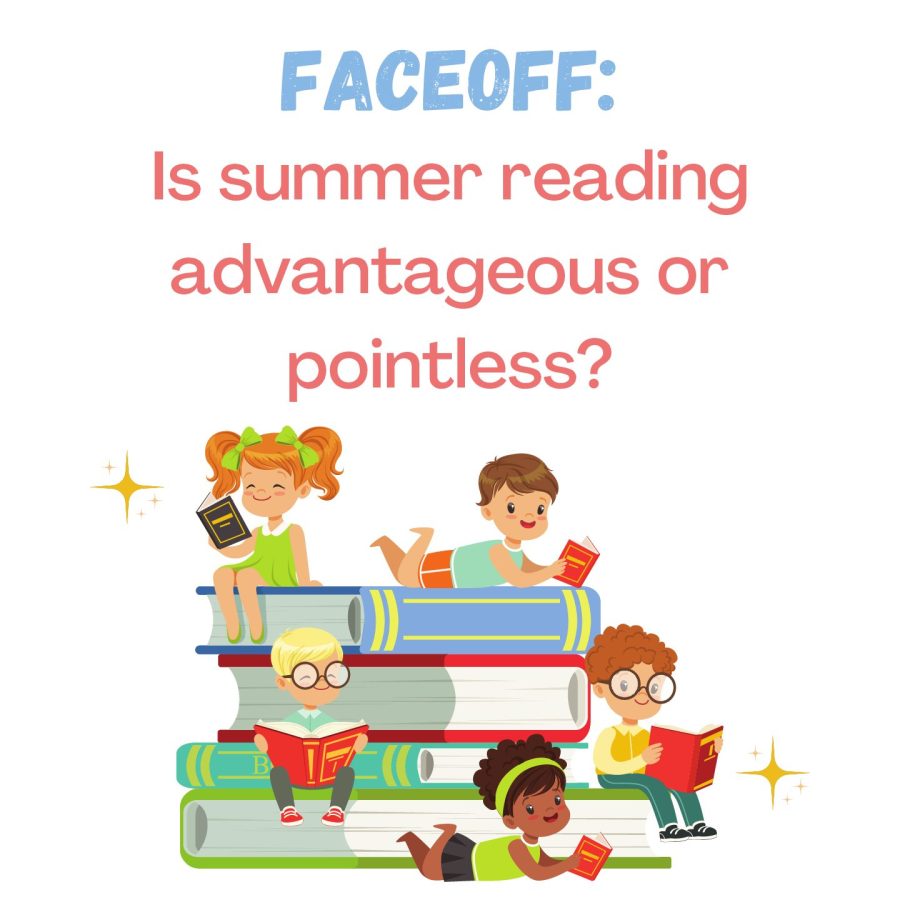FACEOFF: Is Summer Reading Advantageous?
May 30, 2022
Yes (K.P)
Before the school year ends, English teachers post their summer reading lists, which include books such as “Siddharta” and “Thank You For Arguing.” While many students consider these assignments an unwelcome reminder of the upcoming school year, they do have practical value. With a few exceptions, they are the only school-related work students have to do. This in itself is problematic: according to testing agency NWEA, the average student loses between 17% and 34% of the prior year’s learning over the summer, in large part because the student does not do anything academic or mentally challenging for three months. This phenomenon is also known as ‘summer slide’ and tends to disproportionately affect low-income and minority students. This makes it especially crucial for Palmetto, in particular, to continue assigning summer reading: nearly half of MPSH students qualify for free lunch and over three-quarters are minorities.
Additionally, beyond combatting learning loss, reading books over the summer ensures that students are well-prepared for not only their next English class, but all classes. Reading comprehension is essential regardless of the subject, and the more practice students get, the better equipped they will be to succeed in science, math, social studies and English.
Besides its practicality, requiring students to read over the summer encourages a love of reading. Like any skill, practice is the key to improvement, and as reading becomes easier, students tend to like it more. Not to mention, they develop their analytical skills along the way. It also introduces students to new world views. Reading about other cultures, perspectives, experiences and beliefs is a fantastic way to explore the world from the comfort of one’s home. This exposure helps foster empathy, understanding and maturity.
Some might argue that assigning books does not cultivate a genuine appreciation for the activity, and turns reading into a chore when it should be fun. In a perfect world, it would not be necessary to assign books, and students would read voluntarily. But the reality is that students turn to their phones more often than they turn to books. According to the American Psychological Association, less than 20% of teens report they read for pleasure daily, a steep decline attributable to the rise of less traditional forms of media. This is a shame, given that reading can relieve stress and enhance creativity.
Overall, even though some might find required summer books a nuisance, they have practical uses and help cultivate a joy for reading, an activity that will help in all areas of a student’s life.
No (V.A)
When teachers assign a book every year, students are not given something to enjoy. It is typically a book that seems like a chore.
When the final bell rings, which indicates freedom and fun, many students realize that their time that is supposed to be spent relaxing and spending time with friends and family, will now also be spent reading a book they do not find interesting. Or rather, one that interferes with their set plans for the summer. While some students may try to find time to read the book assigned, it may be a burden to read as not every student has the same interest in the given book genres. While some might love mystery books, others might like rom-com books. However, because you only ever get one or two choices for books, this leaves very little interest for students who want to spend time reading.
This leads to many students not reading the book and being clueless when they walk into the first day of their English Class. They are now relying on spark notes to know what the books that they found no interest in over the summer are about.
Once the teacher is done wrapping up what the school year is going to look like and begins talking about the book “every” student supposedly read, many students are unaware of what materials were covered in the book or maybe lost with what the message of the book was. Whichever the answer may be, it still does not take away from the fact that it is difficult for the student.
While students can go through the trouble of reading a book over the summer, summer reading only creates a hateful relationship with books. This is because of the few selections and the stress that comes with reading during a time of relaxation. This will not increase the love for learning and reading. Rather, it will just make students never want to pick up a book again. Which defeats the whole purpose of why schools do summer reading. Summer should be filled with activities that make students happy, and for many students, this does not include summer reading.










